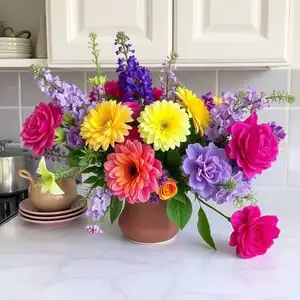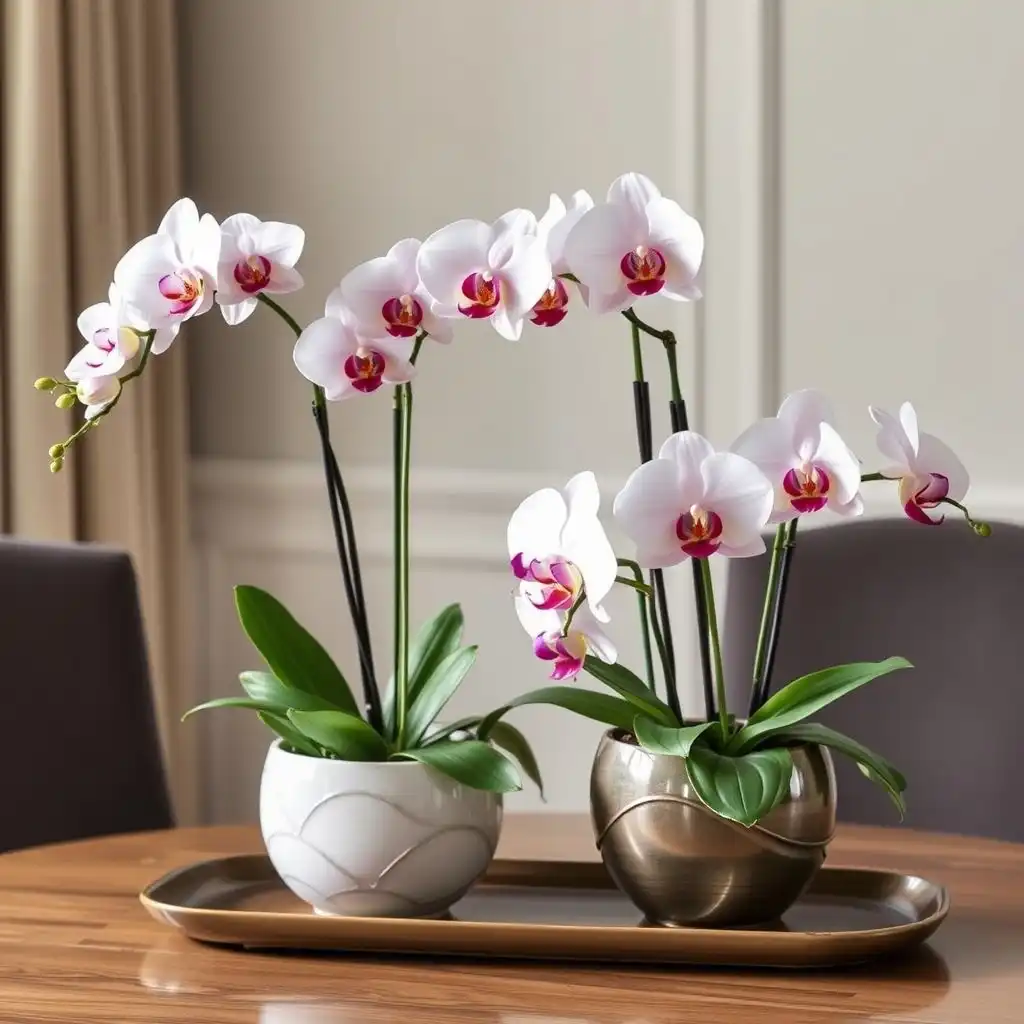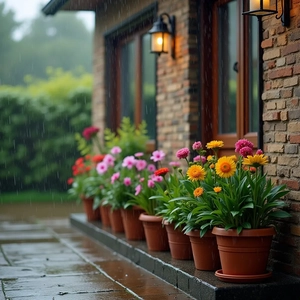
The situation here is a bit of a mixed bag. While dining tables can pop up in all sorts of places around the house, kitchens still tend to be the most common spot – at least, statistically speaking. So for the sake of this article, we’ll focus on kitchens as our go-to example.
And the kitchens… Well, they aren’t the most comfortable environment for many plants. That’s just true: with high humidity, steam, temperature changes, splashes of water, and even grease, it’ll be a challenging spot.
However, plenty of houseplants not only tolerate these conditions, yet also help purify the air and boost your mood.
We’ll share some fascinating details about these plants: as you’ve likely guessed from the title, we’ll not be talking about just some ordinary specimens. Instead, we’ll be focusing on true exotics, with no exceptions.
And we’ll also cover which planters are worth your while.
Where to Place Orchids (And Where to Not)
Let’s talk about orchids – the true stars of any plant collection. These will surely need the right spot to thrive, so here’s how to keep them happy:
- Light is always the key. Orchids love bright conditions but can’t handle direct sunlight, which scorches their leaves. A south-facing window works well in winter, yet in spring, summer, and autumn, an east-facing window is ideal. However, a west-facing window also works, but one should definitely avoid north-facing ones, as they’re usually too dim.
- If you’d like to place your Orchid further into the room – on a side table, shelf, or even the fridge – make sure it’s near a bright window. Note that pale, narrow leaves mean your orchid isn’t getting enough light, so move it closer to the sun.
- When choosing a room, the living room or bedroom is perfect. Kitchens can work too, but keep Orchids away from draughty window sills and stovetops – hot steam isn’t their friend. Instead, try a dining table or a shelf near a well-lit sink. Some place Orchids in bathrooms for extra humidity, yet this only works if there’s plenty of natural light – something many bathrooms lack.
- Orchids are happy at normal room temperatures, but to encourage flowering, give them a cooler spell in winter.

What Other Exotic Plants Can Grace a Dining Table?
We haven’t forgotten about the other candidates perfect for dressing up dining tables. Truth be told, there are plenty of options. Here are just a few ideas.
Zamioculcas
This tropical plant, with its glossy leaves, has become a favourite among many enthusiasts – primarily thanks to its hardy nature. It stores moisture in its roots and stems, so it doesn’t need frequent watering. Absolutely perfect for those who sometimes forget to look after their plants.
Speaking of general care, one should water Zamioculcas moderately, roughly every two to three weeks in summer and every four to six weeks in winter. Still, be careful not to overwater it, as it copes much better with drought than soggy soil. It shines in bright but indirect light – direct one can (and will) scorch its leaves.
Usambara Violet
This charming Violet blooms almost all year round. Its velvety leaves and delicate flowers add a lovely touch to any space. It prefers bright, yet indirect light – as in the case with Zamioculcas.
Water Usambara moderately, two to three times a week. Ideally, fill the saucer rather than watering from above – in order to avoid wetting the leaves. The Violet enjoy higher humidity levels, so misting the area lightly can help to create the right environment.
Plumeria
Plumeria is an amazing home flower: it doesn’t dazzle with luxury, but its graceful simplicity is mesmerising. For its healthy growth, use loose and fast-draining soil. The plant loves warmth and it can’t stand the cold. Bright light is essential: aim for at least six hours of sunlight daily
Note that plumeria sap is toxic. So it’s advisable to wear protection – such as gloves.
Lastly, while Plumeria’s scent is divine, it can be quite strong. That is, if you’re sensitive to fragrance or don’t want it competing with kitchen smells, Plumeria might not be the best bet for you.







